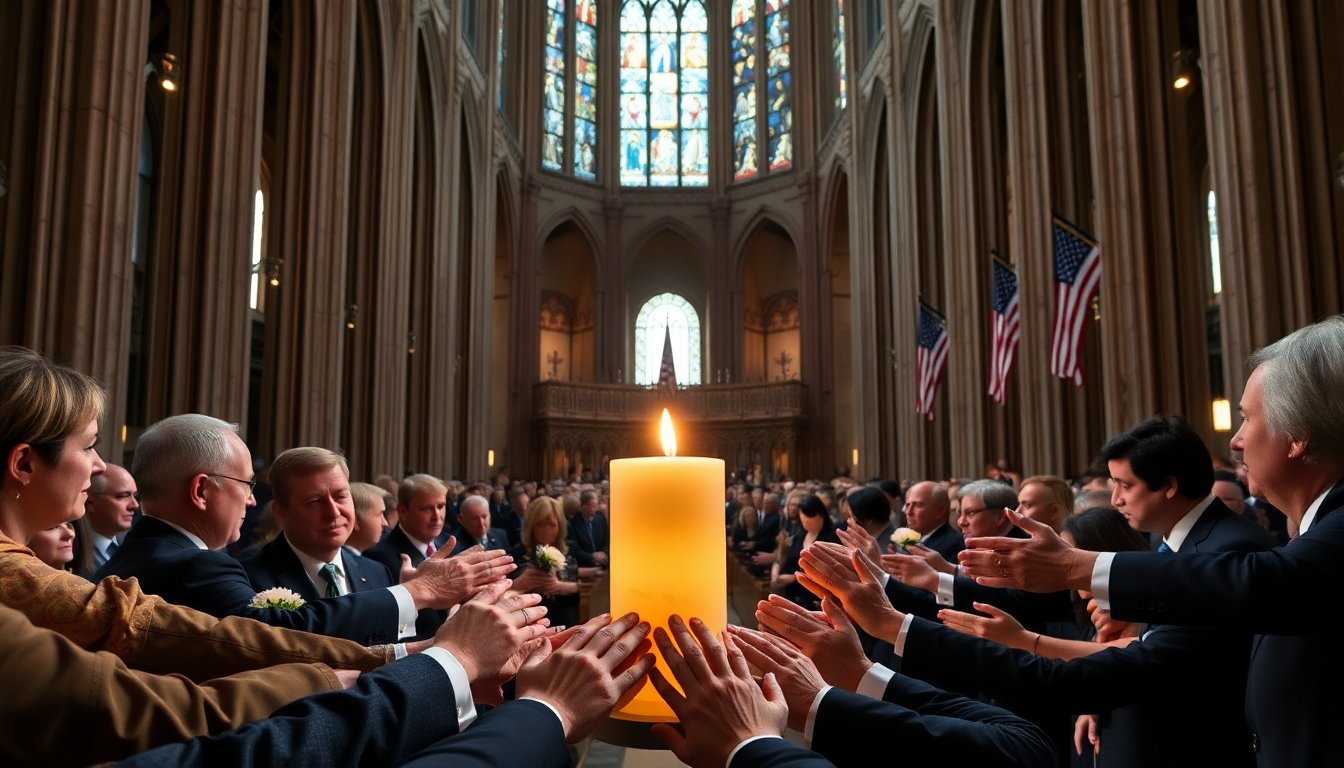Table of Contents
On a notable Thursday, the grand halls of the Washington National Cathedral served as a backdrop for an unusual event where political adversaries united to honor former Vice President Dick Cheney. This gathering highlighted his profound impact on the nation, particularly in the aftermath of the tragic events of September 11, 2001. The ceremony was not only a tribute to Cheney’s legacy but also a reflection of the complex nature of American politics, where deep divides can sometimes give way to shared respect.
Cheney, who played a pivotal role in shaping the United States’ response to terrorism, was recognized for his unwavering commitment during one of the most challenging periods in American history. His leadership, characterized by a strong stance against threats to national security, has garnered both praise and criticism over the years. Nevertheless, this commemorative event drew attention to his significant contributions, showcasing a rare moment of unity among political figures.
Honoring a complex legacy
The gathering at the cathedral included an eclectic mix of attendees, with both Democrats and Republicans present to pay their respects. This unusual coalition illustrated the profound influence Cheney wielded across party lines. Many speakers at the event reflected on his role in navigating the U.S. response to terrorism, emphasizing the importance of his decisions in shaping national policy.
Reflections from political leaders
Among the notable figures in attendance, various political leaders took the podium to share their insights. They recounted Cheney’s tenure as Vice President under George W. Bush and his critical involvement in establishing the framework for counter-terrorism. His approach, often described as aggressive, was a defining feature of his time in office, and many acknowledged the complexities of those strategies.
While some praised his decisive actions, others expressed concerns regarding the implications of his policies. The duality of his legacy was a recurring theme throughout the speeches, as different perspectives emerged on how his tactics influenced both domestic and global landscapes.
A notable absence
Despite the bipartisan spirit of the occasion, two prominent political figures were noticeably absent: current President Donald Trump and Vice President JD Vance. Their absence was particularly significant given Cheney’s vocal opposition to their leadership in recent years. This highlighted the ongoing tensions within the Republican Party and underscored the shifting dynamics in contemporary politics.
The nature of political respect
Even in the face of differing ideologies, the event underscored a fundamental aspect of political life: respect for service and sacrifice. The attendees, representing a spectrum of beliefs, came together to acknowledge Cheney’s commitment to his role and the sacrifices made during a turbulent time. It served as a reminder that, despite the fierce battles fought in the political arena, there remains a shared acknowledgment of the challenges faced by leaders.
The tribute to Dick Cheney at the Washington National Cathedral served as a poignant reminder of the complexities inherent in American politics. It illustrated how, amid division, there can be moments of unity, especially when reflecting on the sacrifices made for national security. As the nation continues to navigate its path forward, the legacy of leaders like Cheney remains a central part of the discourse surrounding governance and the fight against terrorism.


